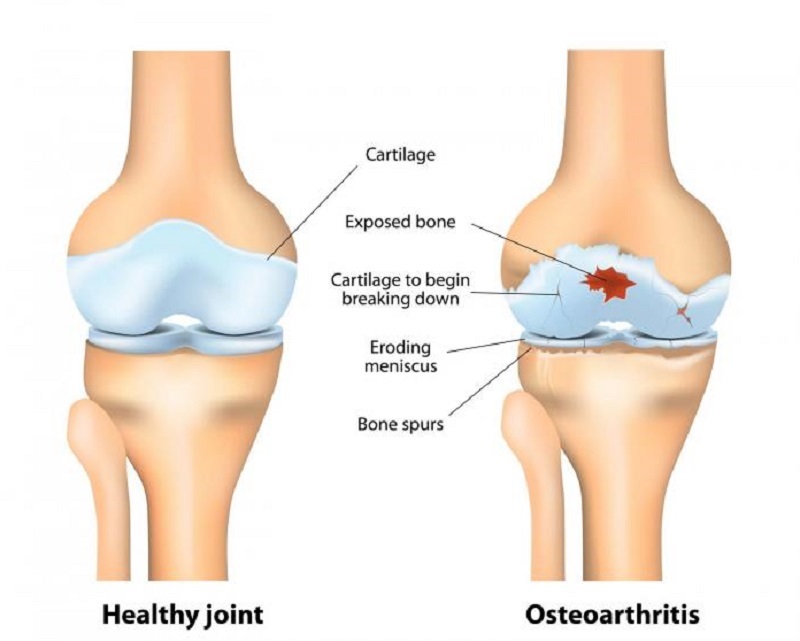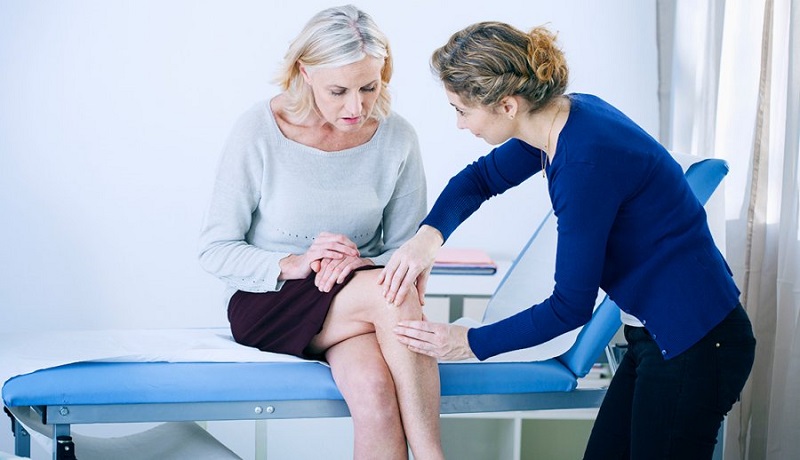
Physically extending and flexing the Knee Joints is sometimes connected with noises like popping, creaking, and crunching. Have you heard a sound when you bend your knees? Do you feel snapping, clicking, grinding, squeaking, or popping sensations when you move your knee joint? Can others hear it too? Well, if this is occurring to you then, let us clarify: when your bones rub against one another and cause thumping and snapping, you get creaky joints.
The medical term for this knee joint creaking is ‘crepitus,' which may likewise be related to swelling and pain in your knees. Now you may be contemplating whether be worried about your creaky joints. Well, there isn't anything to stress over as long as you don't encounter any pain. If your knees make noise and you are additionally experiencing Improper Sitting, then something isn't right.
Here Are Some Possible Reasons for Creaky Knee Joints
Knee Joints creaking occurs for different reasons, aside from osteoarthritis. Here are some of them:
Patellofemoral instability
Everyone's body is marginally unique. The different tissues and parts that make up the knee vary from person to person, whether it is birth or age, injury or life event.
Your knees might flex more than someone else's, for instance, or your kneecaps might move more openly.
Gas bubbles
Over the long run, gas can develop in the spaces encompassing the joint, forming little air pockets in the synovial liquid, at the point when you twist your knee, a portion of the bubbles burst.
This is normal and happens to everybody occasionally. It doesn't cause pain.

Ligaments
The tendons and ligaments around the knee joint might extend somewhat as they pass over a little bony lump. As they adjust back correctly, you might hear a clicking sound in the knee.
Arthritis
Osteoarthritis can occur at any age; however, it typically begins in their 50s.
Also called “wear and tear” arthritis, osteoarthritis regularly influences the joints you utilize frequently and those that bear weight, like the knees.
In osteoarthritis, mechanical pressure and biochemical changes consolidate to break down the ligament that cushions the joint after some time. This causes aggravation and pain, and the knee joint might crunch and crackle.
If you have crepitus with pain, this could indicate osteoarthritis.
Injury
It can also be an aftereffect of injury. Falling on your knee can damage the kneecap or different pieces of the knee joint.
Crepitus can be an indication of this sort of harm.
Meniscus tears are genuinely common in individuals who play sports, run, or jog. A meniscus tear can cause crepitus as the joint moves.
Chondromalacia patella is when you harm the under-surface ligament covering the kneecap. You might see a dull hurt behind the kneecap, for the most part, usually caused by overuse or injury.
Patellofemoral disorder, or runner's knee, begins when you put an excessive amount of power on the patella. It occurs before damage happens in the joint surface of the patella, and it can prompt chondromalacia patella. This can include complex crunching and grinding that you can see or hear when you move your knee.
Surgery
Knees can sometimes become noisier later surgery. This might be because of minor changes that happen during the actual strategy or, on account of joint substitution, features of the new joint.
Often, however, the sounds were there before, yet individuals might see them more later medical procedure since they're all the more distinctly perceptive during the post-op period.
While this can be stressful, an investigation of data for almost 5,000 people concluded that having crepitus later a knee replacement didn't affect people's long-term outlook or quality of life after three years.

How to Improve this Knee Joint Creaking Problem?
So, you have a noisy knee, and now you're stressed, you will get arthritis. What should you do next?
You can find ways to help forestall the movement of joint pain. Above all, deal with your joints:
- Keep your weight down
- Fortify your muscles
- Get regular exercise
Many individuals stress that exercise will speed up ligament loss. Generally, it doesn't. Exercise helps with weight control and sustains your joints. High-impact exercise can be risky with osteoarthritis; however, low-impact activities like cycling, swimming, and yoga are more straightforward to endure and valuable to your joints.
Other ways you can keep up with solid ligament include:
- Eating a good diet
- Keeping away from tobacco items
- Utilizing joint-nourishing supplements
- Taking non-steroidal anti-inflammatory medications
When osteoarthritis advances to later stages, joint-replacement surgery might be a choice. A surgeon eliminates the damaged ligament and bone and replaces them with a fake embed made of metal and plastic. This treatment is generally saved for when the ligament has completely worn away.
Because your knee is important for mobility. You might even rely upon them to take care of your business or partake in exercises you enjoy. So, don't ignore knee pain when it begins. Seeking a brief analysis and treatment can significantly affect how long it takes to heal.
